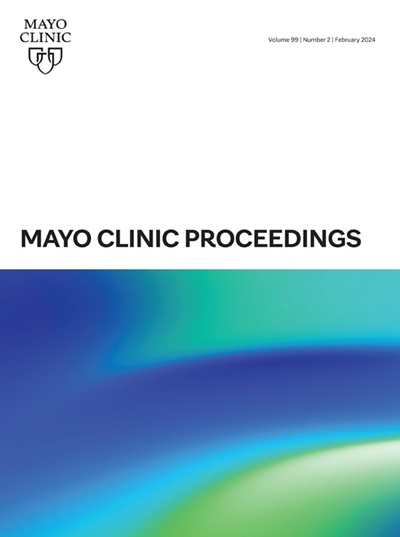Charting a New Path Forward in Addressing Employee Well-being in Health Care
IF 6.9
2区 医学
Q1 MEDICINE, GENERAL & INTERNAL
引用次数: 0
Abstract
Health care worker well-being is critical to delivering optimal care to our patients. With greater understanding of these issues, evidence-informed models of employee well-being have been developed to guide efforts to improve well-being in the workplace. To ensure that organizational approaches resonate with staff needs, these models can be improved for local application by engaging employees in a co-creation process in which they actively participate in developing and refining the institutional framework for employee well-being. This article describes how the Mayo Clinic Employee Well-Being team, led by Mayo Clinic’s first organization-level medical director and administrator of Employee Well-Being, integrated employee input with existing well-being models through a comprehensive process to define a program structure reflecting the most important staff needs. The novel features of this approach are intended to serve as a guide for health care organizations as we work together to promote learning and working environments in medicine in which every member of the health care team can thrive.
在医疗保健领域为解决员工福利问题开辟新道路
医护人员的健康是为患者提供最佳护理的关键。随着对这些问题的深入了解,基于证据的员工幸福感模型已经被开发出来,以指导改善工作场所的幸福感。为了确保组织方法与员工需求产生共鸣,这些模型可以通过让员工参与共同创造的过程来改进,在这个过程中,员工积极参与开发和完善员工福利的制度框架。本文描述了梅奥诊所员工福利团队是如何在梅奥诊所第一位组织级医疗主任和员工福利管理员的带领下,通过一个全面的过程,将员工的投入与现有的福利模型结合起来,以定义一个反映最重要的员工需求的计划结构。这种方法的新特点旨在为医疗保健组织提供指导,因为我们共同努力促进医学中的学习和工作环境,使医疗保健团队的每个成员都能茁壮成长。
本文章由计算机程序翻译,如有差异,请以英文原文为准。
求助全文
约1分钟内获得全文
求助全文
来源期刊

Mayo Clinic proceedings
医学-医学:内科
CiteScore
16.80
自引率
1.10%
发文量
383
审稿时长
37 days
期刊介绍:
Mayo Clinic Proceedings is a premier peer-reviewed clinical journal in general medicine. Sponsored by Mayo Clinic, it is one of the most widely read and highly cited scientific publications for physicians. Since 1926, Mayo Clinic Proceedings has continuously published articles that focus on clinical medicine and support the professional and educational needs of its readers. The journal welcomes submissions from authors worldwide and includes Nobel-prize-winning research in its content. With an Impact Factor of 8.9, Mayo Clinic Proceedings is ranked #20 out of 167 journals in the Medicine, General and Internal category, placing it in the top 12% of these journals. It invites manuscripts on clinical and laboratory medicine, health care policy and economics, medical education and ethics, and related topics.
 求助内容:
求助内容: 应助结果提醒方式:
应助结果提醒方式:


